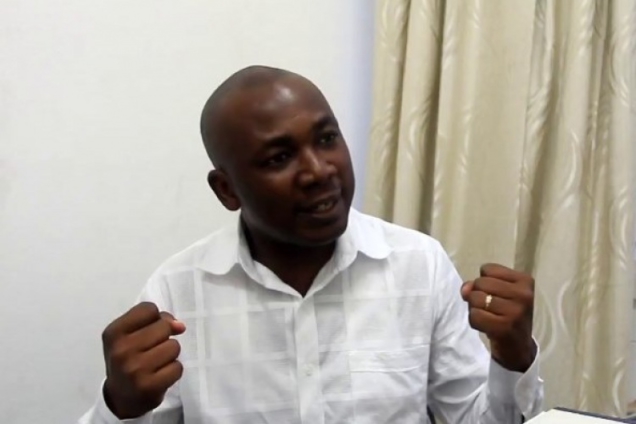Economist and Economics Lecturer at the University of Ghana, Prof. Godfred Bokpin has predicted that this is not the last time the country will be seeking an International Monetary Fund (IMF) bailout.
He said this is due to the failure of successive governments to adopt prudent measures to stabilize the economy.
“This is not the last time we will be going to the IMF. We have failed as a country to successfully do the needful- to say these are the necessary fiscal reforms we need to pride ourselves as a nation that won independence in 1957,” he said on the Super Morning Show, on July 6, 2022.
Ghana has sought the assistance of the Bretton Woods institution 16 times already.
Contributing to discussions on the government’s decision to seek an IMF bailout, Prof. Bokpin recalled that in 2019 when the country was exiting the 16th IMF programme, government promised to roll out some reforms to restore the ailing economy.
"This won't be the last time we will go to the IMF, we have failed as a country successfully to the needful when we were in charge"
— Joy 99.7 FM (@Joy997FM) July 6, 2022
- Prof. Godfred Bokpin on Ghana and the IMF. #JoySMS pic.twitter.com/mltwGeXKva
However, failure to implement those measures has resulted in the current derailed economy.
“When we were exiting the 16th programme in 2019, government promised the IMF they were going to embark upon certain reforms – fiscal reforms, productivity-enhancing reforms and they satisfied the IMF that these were going to be done. The IMF agreed with them in principle and we exited successfully."
He noted that although government pledged to implement an Exemption Bill as part of the measures, this did not happen.
“The other thing they said was a Fiscal Responsibility Act. Inbuilt in that they talked about a Fiscal Council but then the Exemption Bill went to Parliament and government wasn’t really committed to passing the Exemption Bill. They only took it to Parliament to fulfil righteousness. The Bill was never passed,” Prof Bokpin stressed.
He also mentioned that although government promised to do proper supervision of the State-Owned Enterprises (SOEs) to reduce losses, this was not fulfilled.
“If you put all these together, you realise that how we are running our democracy is very expensive – that when it comes to the cost of running the government architecture, it leaves nothing for development activity.
“And if we continue like this, you’ll have to be unique to expect a different outcome and I’m sorry if we don’t take advantage of the next programme to make the necessary reforms, we will be there (IMF) again,” he added.
Latest Stories
-
DAMC, Free Food Company, to distribute 10,000 packs of food to street kids
9 minutes -
Kwame Boafo Akuffo: Court ruling on re-collation flawed
29 minutes -
Samuel Yaw Adusei: The strategist behind NDC’s electoral security in Ashanti region
31 minutes -
I’m confident posterity will judge my performance well – Akufo-Addo
43 minutes -
Syria’s minorities seek security as country charts new future
1 hour -
Prof. Nana Aba Appiah Amfo re-appointed as Vice-Chancellor of the University of Ghana
2 hours -
German police probe market attack security and warnings
2 hours -
Grief and anger in Magdeburg after Christmas market attack
2 hours -
Baltasar Coin becomes first Ghanaian meme coin to hit DEX Screener at $100K market cap
2 hours -
EC blames re-collation of disputed results on widespread lawlessness by party supporters
3 hours -
Top 20 Ghanaian songs released in 2024
3 hours -
Beating Messi’s Inter Miami to MLS Cup feels amazing – Joseph Paintsil
3 hours -
NDC administration will reverse all ‘last-minute’ gov’t employee promotions – Asiedu Nketiah
3 hours -
Kudus sights ‘authority and kingship’ for elephant stool celebration
3 hours -
We’ll embrace cutting-edge technologies to address emerging healthcare needs – Prof. Antwi-Kusi
4 hours

